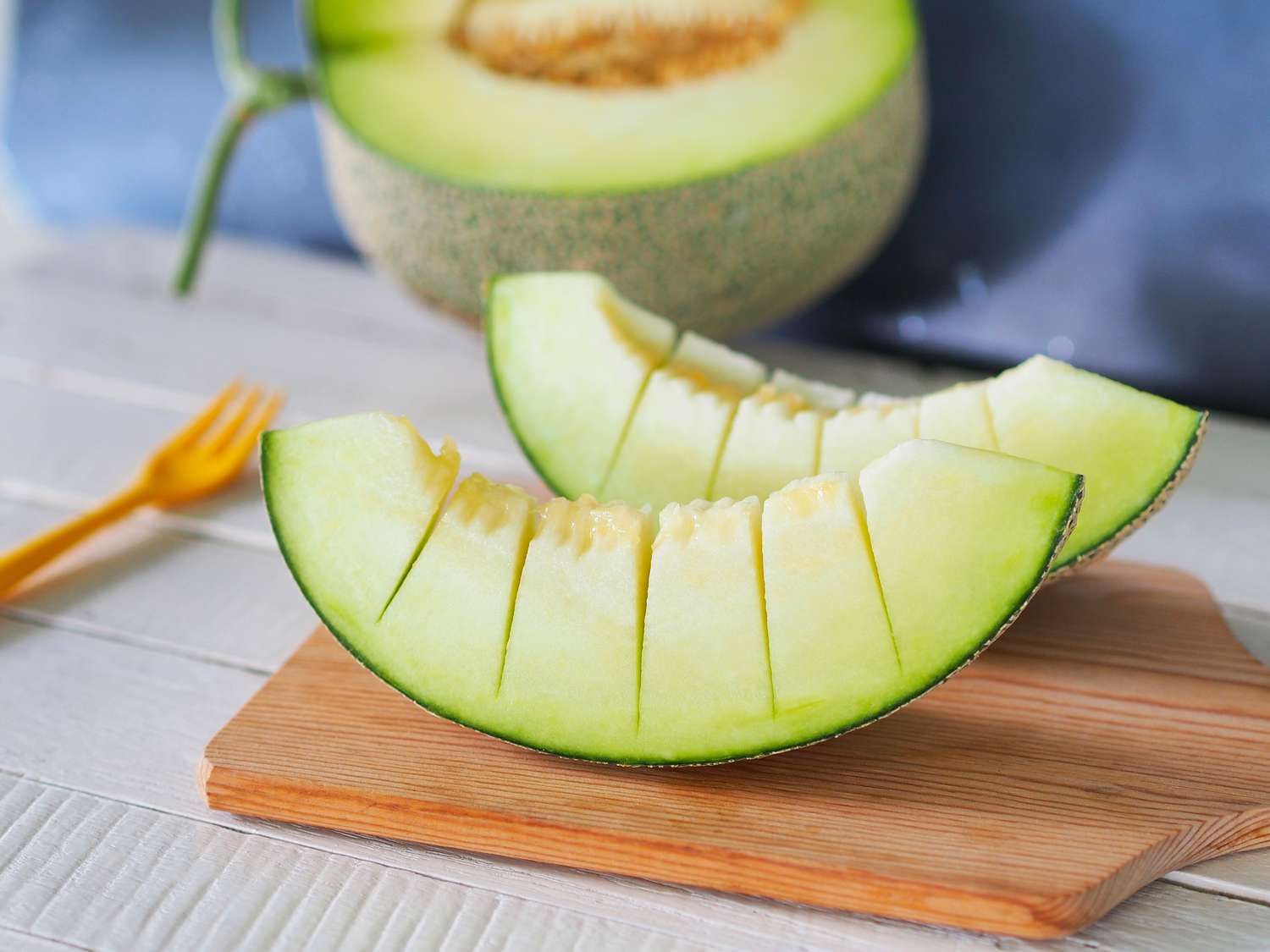
Honeydew melon is a delicious and refreshing fruit that is often enjoyed during the summer months. Its juicy and sweet flavor makes it a popular choice for many people. But did you know that honeydew melon is also packed with nutrients and health benefits? In this article, we will explore 13 fascinating facts about honeydew melon that will leave you craving for more. From its origin and cultivation to its nutritional value and culinary uses, you will learn everything there is to know about this delightful fruit. So sit back, relax, and prepare to be amazed by the incredible world of honeydew melon.
Key Takeaways:
- Honeydew melon is a hydrating, low-calorie fruit packed with vitamins and antioxidants. Enjoy it fresh, in smoothies, or even in desserts for a delicious and nutritious treat.
- With its refreshing taste and high water content, honeydew melon is the perfect choice for staying hydrated and cool during hot summer days. It’s versatile, healthy, and oh-so-sweet!
Refreshingly Sweet Taste
Honeydew melon, also known as Cucumis melo, is a deliciously sweet and juicy fruit that is popular for its refreshing taste. Its succulent flesh has a mild flavor that is reminiscent of honey, hence the name “honeydew.
Varieties of Honeydew Melon
There are several different varieties of honeydew melons, each with their own unique characteristics. Some popular varieties include the Green Flesh honeydew, which has a pale green skin and sweet, green flesh, and the Orange Flesh honeydew, which has a vibrant orange interior.
High Water Content
Honeydew melon is composed of approximately 90% water, making it an excellent choice for staying hydrated during hot summer months. It is not only delicious but also a great way to quench your thirst.
Nutritional Benefits
Honeydew melon is a nutrient-dense fruit that provides a range of health benefits. It is rich in vitamins C and B-6, as well as potassium and fiber. These nutrients contribute to a healthy immune system, cardiovascular health, and proper digestion.
Low in Calories
If you are watching your calorie intake, honeydew melon makes for a perfect choice. With only about 60 calories per cup, it is a guilt-free treat that can be enjoyed as a part of a balanced diet.
Versatile Culinary Uses
Honeydew melon can be enjoyed in a variety of ways. It can be sliced and eaten fresh, added to fruit salads for a burst of sweetness, or blended into smoothies and beverages for a refreshing twist.
Ripening Process
Honeydew melons are typically harvested when they are still firm and green. They continue to ripen after picking, gradually transforming into a luscious yellow color and becoming juicier and sweeter with time.
Honeydew Smoothies
One popular way to enjoy honeydew melon is by incorporating it into smoothies. Its naturally sweet flavor pairs well with other fruits such as strawberries, bananas, and oranges, creating a delicious and nutritious treat.
An Excellent Source of Hydration
With its high water content, honeydew melon is a hydrating fruit that can help quench your thirst. It is a great option for staying cool and refreshed on hot summer days.
Honeydew in Desserts
Honeydew melon can also be used as a delightful ingredient in desserts. From sorbets and popsicles to cakes and tarts, its subtle sweetness adds a refreshing twist to your favorite sweet treats.
Antioxidant Properties
Honeydew melon contains antioxidants such as vitamin C and beta-carotene, which help protect your cells from damage caused by free radicals. These antioxidants contribute to overall well-being and may help reduce the risk of chronic diseases.
Choosing a Ripe Honeydew Melon
When selecting a ripe honeydew melon, look for a fruit with a slightly waxy surface and a sweet fragrance. Gently press the blossom end of the melon, and if it gives slightly, it indicates that it is ripe and ready to be enjoyed.
Growing Honeydew Melon
If you have a green thumb, you can try growing your own honeydew melons. They thrive in warm climates and require fertile soil, ample sunlight, and regular watering. With a little patience and care, you can enjoy the satisfaction of harvesting your own sweet and juicy honeydew melons.
Conclusion
Honeydew melon is not only delicious but also packed with essential nutrients. From its sweet flavor to its numerous health benefits, it is no wonder that honeydew melon is a popular choice for many. Whether eaten on its own, added to salads, or used as a refreshing ingredient in drinks, honeydew melon is a versatile fruit that can be enjoyed in various ways.
Next time you come across a honeydew melon, remember these 13 interesting facts and impress your friends with your knowledge. From its origin in ancient Persia to its high water content, honeydew melon is truly a fascinating fruit that has been enjoyed for centuries.
So go ahead, indulge in some sweet and juicy honeydew melon and reap its many benefits. Your taste buds and body will thank you!
FAQs
1. Is honeydew melon good for you?
Honeydew melon is highly nutritious and low in calories, making it a great choice for a healthy snack. It is rich in vitamins C and K, potassium, and antioxidants.
2. How do you know if a honeydew melon is ripe?
A ripe honeydew melon should have a slightly firm texture and a sweet aroma. Its skin should be pale yellow or cream-colored.
3. Can I eat the seeds of a honeydew melon?
Yes, the seeds of a honeydew melon are edible. However, some people prefer to remove them before consuming the fruit.
4. How should I store a honeydew melon?
It is best to store a honeydew melon in the refrigerator. Keep it in a ventilated container or wrap it in plastic wrap to maintain its freshness.
5. Can honeydew melon help with hydration?
Yes, honeydew melon has a high water content, which makes it an excellent choice for staying hydrated and quenching thirst.
6. Can honeydew melon be frozen?
Yes, honeydew melon can be frozen. Simply cut it into cubes and place them in an airtight container or freezer bag. Frozen honeydew melon can be used in smoothies or as a refreshing snack.
7. Is honeydew melon safe for people with diabetes?
Honeydew melon has a low glycemic index and is a good source of fiber, making it a suitable fruit option for people with diabetes. However, portion control is still important.
Honeydew melon's a delightful treat, but there's more to explore in the world of fruit facts. Dive deeper into the fascinating realm of melon trivia, or discover how healthy food like Aldi yogurt can benefit your diet. Whether you're a curious foodie or simply looking to expand your knowledge, these articles offer a wealth of information that'll keep you engaged and informed.
Was this page helpful?
Our commitment to delivering trustworthy and engaging content is at the heart of what we do. Each fact on our site is contributed by real users like you, bringing a wealth of diverse insights and information. To ensure the highest standards of accuracy and reliability, our dedicated editors meticulously review each submission. This process guarantees that the facts we share are not only fascinating but also credible. Trust in our commitment to quality and authenticity as you explore and learn with us.


